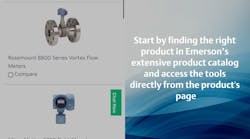A November vote against tougher regulations on hydraulic fracturing in Colorado will not end anti-fracking efforts in the state or in other regions, former Colorado Governor Bill Ritter said Sunday on Platts Energy Week.
The oil and gas industry believes that swaying Colorado residents to vote “nay” on two ballot questions concerning fracking will quiet opposition in other areas of the country, Ritter said on the all-energy news and analysis program.
"They faced local opposition unsuccessfully in some states, even in states like Texas and Pennsylvania,” he said. “I don't believe that if they win it in Colorado" the opposition will cease.
While the measures in question do not specifically address fracking, they result from anti-fracking sentiment in parts of the state.
The first, Initiative 88, would require oil and gas wells to be no less than 2,000 feet from occupied structures, four times the 500 feet now in effect. The second, Initiative 89, would allow local communities to implement environmental regulations stricter than state requirements.
RELATED: EPA Seeks Public Comments on Disclosure of Hydraulic Fracturing Chemicals and Mixtures
Ritter, a Democrat who served as Colorado governor from 2007 to 2011, acknowledged that the industry is digging deep into its pockets to launch a campaign aimed at defeating these measures and that it has succeeded in past such efforts. But he said an industry win would not end opposition.
"There's still going to be this effort on the part of people who represent local communities and even those who are active in the anti-fracking movement, to continue to push back on a set of state regulations that may not adequately take into consideration what local communities need," Ritter said.
Ritter, who now heads the Colorado State University Center for the New Energy Economy, said that while he believes local communities should be able to set standards that exceed state requirements, he opposes the ballot measures because they would result in rules that are too "calcified."
"A rule-making body like our Oil and Gas Conservation Commission can be more nimble and actually change the rules," he said.
But he said steps should be taken to give local communities a say in fracking.
"We really have to understand how we get this resource out of the ground, but do it in a way that takes into consideration the quality of life of people living in communities," he said. "There are really legitimate concerns that local governments have about hydraulic fracturing. And we're going to have to figure it out one way or the other."
Whatever the outcome of the November vote, Ritter said the big lesson for the industry is to embrace more transparency.
The former governor said producers were asked in 2007 and 2008 to fully disclose the chemical makeup of their fracking fluids and refused.
"They [eventually] got around to … disclosing in most states around the country,” he said. “But I think, in the meantime, they lost credibility.


